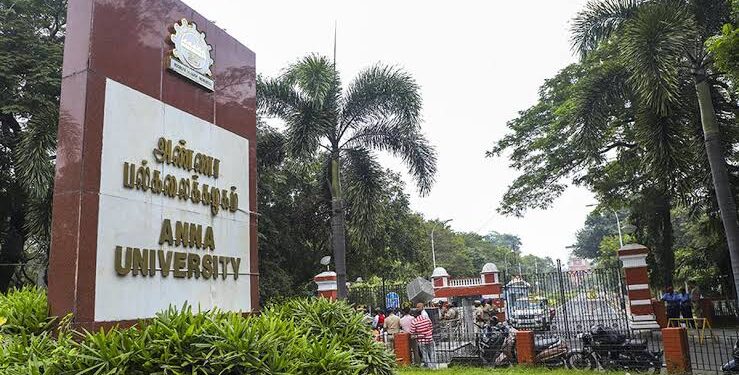Anna University Identifies Deficiencies in Over 400 Engineering Colleges in Tamil Nadu.
A recent audit conducted by Anna University, one of India’s premier technical institutions, has revealed significant deficiencies in approximately 400 engineering colleges across Tamil Nadu, raising concerns about the quality of technical education in the state. The findings, which have sparked widespread debate, highlight issues ranging from inadequate infrastructure to faculty shortages and non-compliance with academic standards.
According to sources familiar with the audit, the deficiencies include a lack of qualified teaching staff, insufficient laboratory facilities, outdated curricula, and failure to meet accreditation requirements set by bodies such as the All India Council for Technical Education (AICTE). Some colleges were also found to have inadequate student support systems, including outdated libraries and limited access to modern technological resources.
The audit, conducted as part of Anna University’s oversight of affiliated colleges, has prompted calls for stricter regulatory measures. A post on X by user @DolphinSrithar
on June 25, 2025, questioned whether the list of non-compliant colleges would be made public and if these institutions would be excluded from the Tamil Nadu Engineering Admissions (TNEA) counseling process, reflecting growing public concern.
Anna University, ranked 10th among Indian universities but recently slipping to 465th in the QS World University Rankings 2026, oversees a vast network of engineering colleges in Tamil Nadu. The institution, which includes prestigious campuses like the College of Engineering, Guindy (CEG), established in 1794 as Asia’s oldest technical institution, is a cornerstone of technical education in India. However, the audit’s findings have raised questions about the state’s ability to maintain consistent educational standards across its extensive network of affiliated colleges.
Education experts have pointed out that the deficiencies could impact the employability of graduates, especially in a competitive global job market that demands cutting-edge skills in fields like artificial intelligence, data science, and sustainable engineering. The state’s Higher Education Minister has been urged to address these issues promptly, with stakeholders calling for transparency and corrective action.
The Tamil Nadu government and Anna University have yet to release an official statement on the audit’s findings or outline specific measures to address the deficiencies. However, officials have indicated that steps are being taken to ensure compliance, including potential restructuring of underperforming programs and institutions. Earlier this year, Anna University announced plans to merge certain postgraduate courses with low enrollment to enhance academic quality and innovation.
The findings come at a time when Tamil Nadu’s higher education sector is under scrutiny, particularly after a high-profile sexual assault case at Anna University’s Guindy campus in December 2024, which drew international attention to campus safety and governance. These developments underscore the broader challenges facing the state’s educational institutions as they strive to maintain global competitiveness.
As the debate continues, students, parents, and industry leaders are awaiting clarity on how Anna University and the state government will address the deficiencies to ensure that Tamil Nadu’s engineering colleges meet international standards. The outcome of this audit could have far-reaching implications for the future of technical education in India.





































